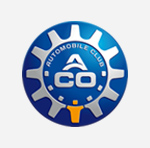The 24H Karting has been part of the CIK/FIA calendar for a few years now. How are things going?
The ASK ACO, and the ACO itself, is delighted with the tremendous collaboration developed with the CIK/FIA. For four years now, these two entities and the promoter KMO have been working hard to make Group 1 (OK engines) the benchmark of mechanical prowess. The 24H Karting is the ideal test of reliability, especially for top-end engines, under the punishing conditions of a 24-hour race.
However, despite its great potential, we must admit that this class has failed to really take off in France. It is not for us to examine the reasons why, but the cost involved in running these engines is probably one of them. It is also true that the domestic market seems to be stagnating. A lot of tried-and-tested machinery has been out there for many years and isn’t being renewed.
On the international scene, however, the situation is different. We agreed with the CIK/FIA to move the date of the 24 Hours to late September so manufacturers would be free of their major international Sprint commitments. However, competitors – and particularly manufacturers – do not spread their operating budget over a team of four drivers, but over a programme that brings together a group of 10 to 12 drivers within the same structure. Therefore, Sprint races naturally take priority although the situation would probably be different if a manufacturers’ world championship title were awarded on the basis of aggregate points from CIK/FIA-labelled Sprint and Endurance events. However, there is no doubt that the enthusiasm for Endurance is still there, as seen with the 48-strong field in the KFS class for the six-hour race at our track in November.
With so many competitors potentially attracted to Endurance, but apparently facing calendar and equipment classification issues, what can the 24H Karting organisers do to get them on the grid?
We have been holding consultative meetings to find out what everyone’s aims and restrictions are. Three major themes have emerged and we have adopted them as guidelines: accessibility, fair competition and enjoyment.
In 2019, we therefore allowed teams to name a fifth driver. It may not seem like much but this extra driver gives teams the opportunity to spread their running costs and reduce each driver’s contribution. To continue the theme of accessibility, we also introduced an Amateur classification in 2019 to allow competitors to take part in the race with a stock chassis and keep preparation and transformation costs to a minimum.
As for fair competition, the technical crews paid particular attention to monitoring and compliance with regulations during the event. Not an easy task given the number of people required to monitor checks throughout a 24-hour race. Nonetheless, these efforts will of course continue in 2020.
After organising the 2019 IAME International Final (460 drivers) and the Rotax Max Challenge International Trophy (320 drivers), we are reassured by the amount of interest in the “one-make-engine” formula. Limiting the number of engine types is also another way of optimising the technical checks. The 2020 24H Karting will therefore comprise an ELITE class and an ESPOIR class. The Elite class will be for Rotax and X30 Brand Cup engines and will be open to all national and international licence-holders born before 2007. The Espoir class will be for Rotax and X30 Junior Brand Cup engines and will be open to young drivers born between 2004 and 2008 who hold a national or international C-Junior licence.
As a result, 80% of current entrants in the 24H Karting will be in with a chance of finishing top of the overall rankings. That’s vitally important as far as we’re concerned. You have to remember that karting is the first step on the motorsport ladder. The discipline must remain simple and affordable so we can get as many youngsters as possible competing and coming through.
What’s the reason behind the date change from late September to late August?
By moving it forward a month to the end of August, we are hoping for better weather which is essential in karting. As it is also traditionally a holiday period, it should also be less of a problem for the drivers in terms of work or school.
All these measures are the outcome of discussions with the stakeholders and also with competitors looking to enter the world of endurance and the 24H Karting – our priority. We look forward to welcoming them to Le Mans from 27 to 30 August 2020.
